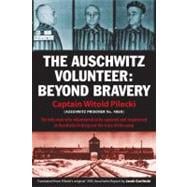
Note: Supplemental materials are not guaranteed with Rental or Used book purchases.
Purchase Benefits
What is included with this book?
| Introduction | p. xi |
| Foreword | p. xi |
| Translators Introductory Note | p. xix |
| Publisher's Note | p. xxiii |
| Selected Highlights from Pilecki's 1945 Report | p. xxix |
| List of Maps | p. xxxi |
| Historical Horizon Captain Witold Pilecki: The Report, the Mission, the Man | p. xxxiii |
| Captain Pilecki's Covering Letter to Major General Tadeusz Pelczynski | p. 1 |
| Captain Witold Pilecki's 1945 Auschwitz Report | p. 5 |
| Glossary of English, German and Polish Terms and Acronyms | p. 335 |
| German-Language Positions and Ranks at Auschwitz Mentioned by Pilecki | p. 343 |
| Index of People and Places Referred to by Pilecki with Either a Code Number or Letter | p. 345 |
| Chronology of Pilecki's 1945 Report | p. 355 |
| Index | p. 365 |
| Discussion Questions | p. 397 |
| Table of Contents provided by Ingram. All Rights Reserved. |
The New copy of this book will include any supplemental materials advertised. Please check the title of the book to determine if it should include any access cards, study guides, lab manuals, CDs, etc.
The Used, Rental and eBook copies of this book are not guaranteed to include any supplemental materials. Typically, only the book itself is included. This is true even if the title states it includes any access cards, study guides, lab manuals, CDs, etc.